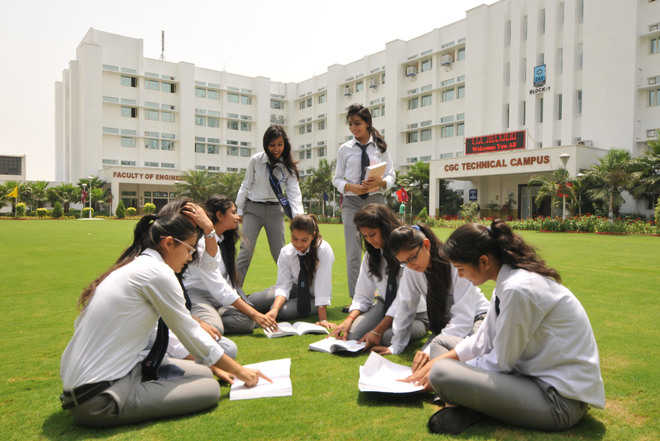
School of thought: Based on India’s cultural and ethnic diversity, the country needs diversity institutions rather than university institutions, feels the author Tribune photo: Vicky Gharu
Vishav Bharti
In just 130 pages, GN Devy crisscrosses two thousand years of knowledge systems in India. From Upanishads that heralded pre-colonial philosophical thought in this land to medieval Indian pedagogical practices; from invention of paper that quickly renewed and expanded the established disciplines to oppressive metaphysics becoming the social and legal norm; from boom of private universities to the damage done by present “technical education bazaar” — century-after-century, age-after-age, he moves swiftly.
Yet Devy, who is known for his seminal work People’s Linguistic Survey of India, doesn’t make any tall claims and calls the work “‘reflections’ of a person for whom knowledge and education have been serious concerns for several decades.”
He leaves hardly any aspect untouched when it comes to the Indian knowledge system of the past two millenniums. The fields of knowledge, Devy says, went through a number of modifications during the medieval times, particularly after the main languages of knowledge transactions — Tamil, Pali and Sanskrit — were replaced by modern Indian languages and discovery of paper aided their expansion.
In the dark times of “public lynching”, silencing voices of dissent and muzzling of rational thought, Devy argues that history has remained seriously lopsided as it did not take into account the knowledge traditions of the indigenous communities like Adivasis and Shudras. Though they continued to develop their own technique of dealing with natural forces and natural resources, they were left out of the spectrum of formal education and knowledge production.
While trying to trace the origin of Manusmriti, Devy concludes that: “Given the rise of this kind of metaphysics translated into social and legal practices, there was no possibility of creating a humane society. The argument was closed in India forever.” Devy’s words remind of Paulo Friere’s foreword in the Pedagogy of the Oppressed, wherein he hopes of “creation of a world in which it will be easier to love.”
He tells how ruthlessly the British colonial rule in India destroyed the traditions of education with the imposition of English language. Devy goes a step further and presents a critique of “knowledge imperialism”. He questions Western hegemony over knowledge and picks holes in colonial ethnography and points at blunders committed by British linguists and their racist social cartography which ultimately led to the enactment of Criminal Tribes Act. He points how amid knowledge hegemony, even fundamental contribution of great India scholars like DD Kosambi met “with suspicion and disregard”.
As we witness an unprecedented private university boom, the work reminds us the true business of university: “The universe, this known universe and other universes not known to man as yet, is the true business of a university.” Looking at India’s cultural and ethnic diversity, Devy seems to open a new paradigm in the ideas of higher education when he says that the institutions that India needs are “‘diversity institutions’ rather than ‘university institutions’.” He reminds how Gandhi’s idea of knowledge as freedom, Aurobindo’s idea of knowledge as the search for a greater truth and Tagore’s ideas of knowledge as a process of realisation though were unique and different, these “scrupulously avoided tagging knowledge as education along with the task of nation building.” At the same time, he feels no discussion on education and knowledge production can be complete without referring to Bhim Rao Ambedkar, who brought to India “an imagination that previously no one except the Buddha had brought.”
When government after government has promoted the idea of education as an industry, this splendid work asks the basic question about the purpose of education. It asks if education is only about campus placements, celebrating salary packages, institute ranking business or quantifying mass producing doctors and engineers. This work needs to be celebrated because it teaches us that knowledge is about thinking, questioning, reasoning, quest, research and pursuit of truth.



























